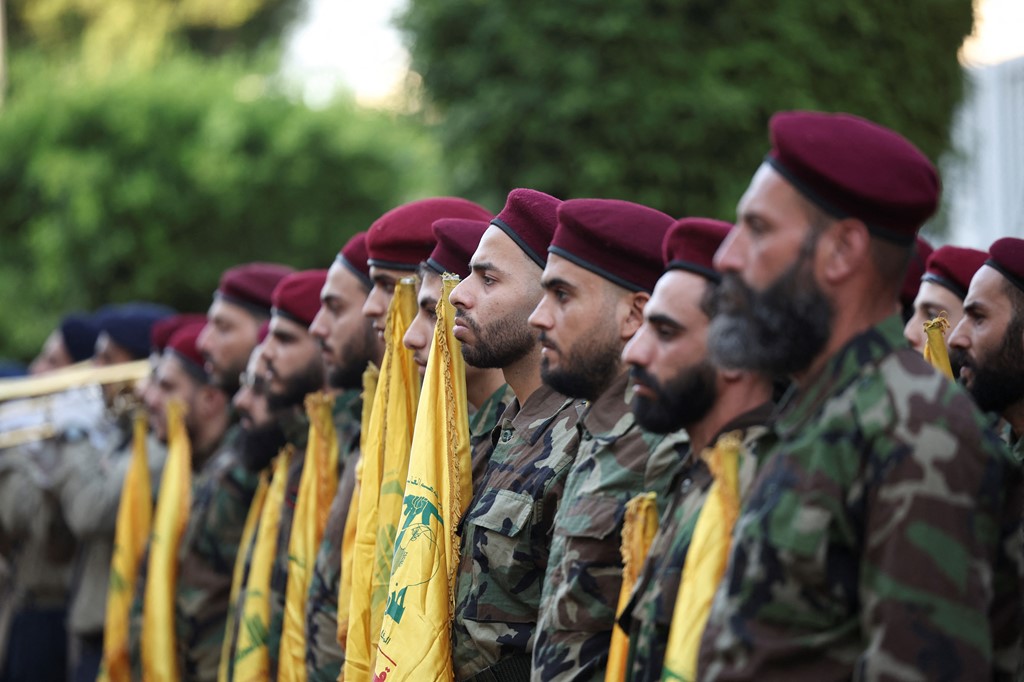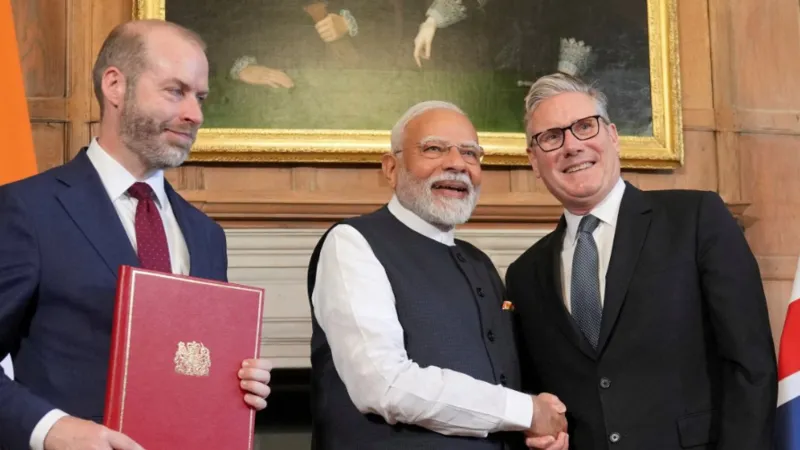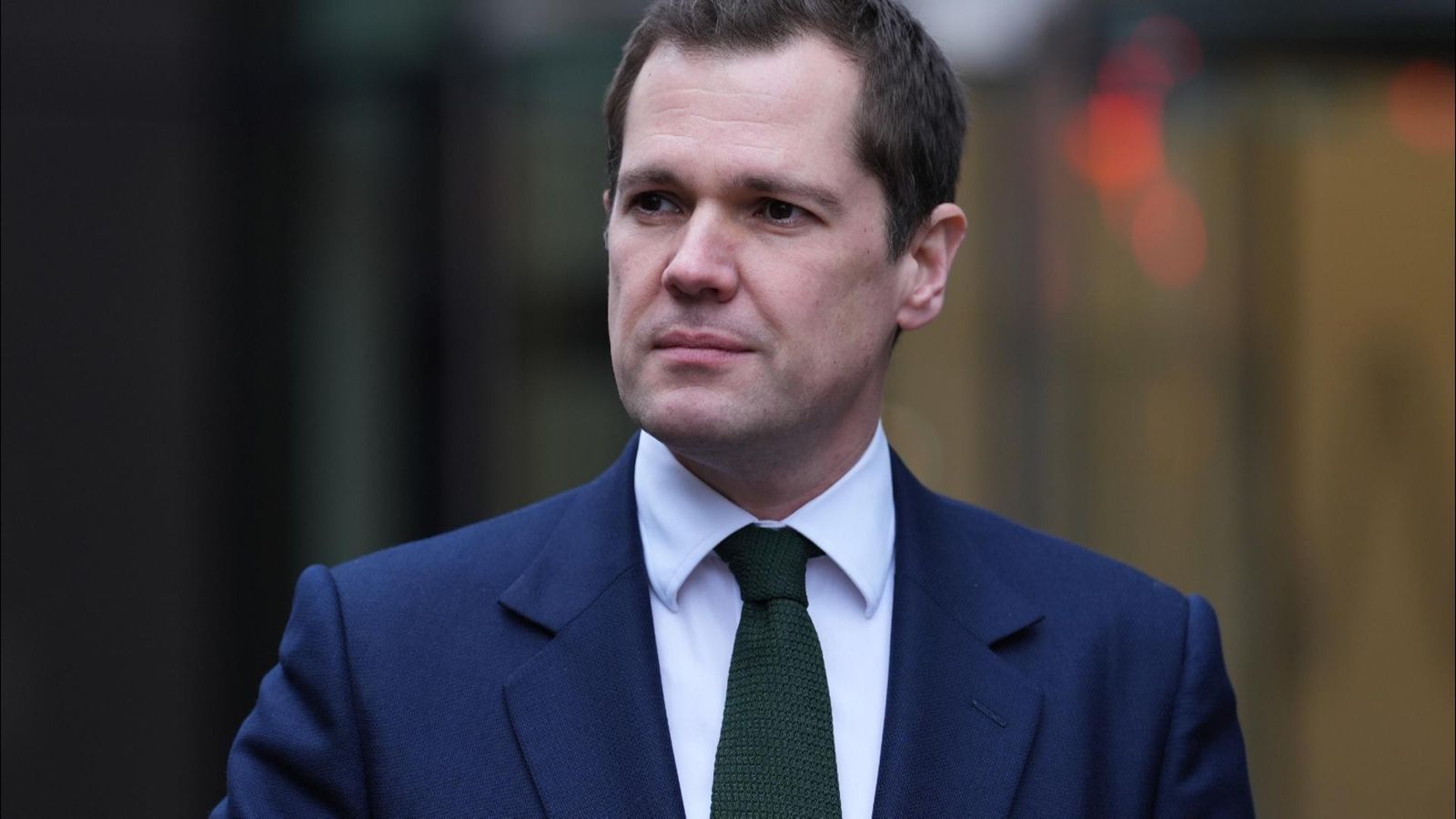Israel-Hezbollah latest: Temporary ceasefire deal 'expected in coming hours'
Senior US officials say a 21-day truce along the Israel-Lebanon border could allow time to negotiate a more comprehensive ceasefire. It comes after the US, UK, France and other allies issued a statement urging a pause in the fighting.

Ceasefire deal to be implemented 'in coming hours'
Senior US officials have said that they expect a ceasefire deal to be implemented "in the coming hours" along the Israel-Lebanon border.
Speaking to reporters in a late-night, last-minute phone briefing, the US administration officials said that exhaustive behind-the-scenes diplomacy had resulted near agreement between the two sides.
One administration official said: "The ceasefire will be for 21 days along the blue line (demarcation line dividing Lebanon from Israel and the Golan Heights).
"During those 21 days, the parties will negotiate towards a potential resolution of the conflict that has been ongoing since Hezbollah launched the attack on October 8, and to reach a comprehensive agreement along the blue line that allows for residents to return to their home in both Lebanon and Israel."
The official emphasised that this ceasefire proposal was for the northern border only and did not extend to Gaza where Israel's military offensive against Hamas continues, but that a pause in the fighting between Israel and Hezbollah would create the "space" for progress in Gaza.
"It buys some time and space to try to pursue an arrangement in Gaza along the lines of the hostage deal we've been discussing," the US official said.
He continued: "We believe, regardless of what has happened on the battlefield over the last several days, the moment we feel is now to achieve that diplomatic resolution; to get there."
The British-Palestinian doctor ignoring PM's advice to leave Lebanon
While governments and world leaders are calling on their citizens to leave Lebanon amid fears of a regional war, one British-Palestinian says he is staying put.
Dr Ghassan Abu-Sittah is a plastic and reconstructive surgeon currently helping assist hospitals in Beirut.
Known for providing medical assistance in conflict zones, particularly the Gaza Strip, Dr Abu-Sittah arrived in Lebanon following last week's pager and walkie-talkie explosion attacks.
Asked about the operational facilities and conditions in Lebanese hospitals, Dr Abu-Sittah told Sky News the country's health system is in a "fragile" state.
"The problem is that Lebanon has had a crippling economic crisis over the last four years which has left the health system quite fragile in terms of the migration of a third of the doctors and nurses and the purchasing capacity of a lot of the hospitals," he said.
Dr Abu-Sittah went on to describe how, at the time of last week's walkie-talkie and pager attacks, many hospitals in Lebanon were already full, meaning doctors had to discharge patients quickly to receive almost 2,000 wounded others.
"Unfortunately, kids constitute a big part of these blast injures, especially from the homes that were targeted," he said.
"We have an intensive care unit full of children. Blast injuries to the face, amputations to the limbs, shrapnel wounds, spinal cord to the abdomen with perforated bowels - these are explosive injuries and the same I saw in Gaza back in October."
Asked whether Dr Abu-Sittah would take Sir Keir Starmer's advice to leave Lebanon, he said he would not, instead calling on the British government to help end the violence by imposing sanctions and an arms embargo against Israel.
The considerations for Israel and Hezbollah before agreeing truce
A pause in fighting with Hezbollah would give Israel time to achieve its aims through diplomatic means, our Middle East correspondent Alistair Bunkall says.
Benjamin Netanyahu's government is under pressure to restore security to its northern border and bring people evacuated from the area back to their homes, while it is also trying to bring hostages home from Gaza.
"Israel knows, for all of its talk, the ground invasion of Lebanon would be a very deadly and difficult exercise for the Israeli military," Bunkall says.
"And so a pause in the fighting to try to achieve what they want through diplomatic means might be quite attractive."
Hezbollah would also no doubt like a pause in the fighting, adds Bunkall, with the group "still reeling" from the last week of airstrikes that have dismantled its leadership and parts of its infrastructure.
But there are also reasons why both Israel and Hezbollah might not want a pause in fighting, Bunkall says.
"Israel has momentum at the moment," he adds. "They have had, let's make no bones about it, a pretty good eight or nine days, and Hezbollah has not really done much damage in return.
"So Israel might feel that a pause in the fighting risks that momentum, and they want to keep that boot on the necks of Hezbollah."
Hezbollah accepting a ceasefire would be "deeply humiliating" for its leader Hassan Nasrallah, with the group's "very existence" being to fight Israel.
"It would probably call into question the very being of Hezbollah as this military entity."
Starmer meets with Palestinian president in New York
Sir Keir Starmer has met Palestinian President Mahmoud Abbas on the sidelines of the UN General Assembly in New York.
The pair discussed bilateral relations between Britain and Palestine and ways to achieve peace and stability in the region and create "a viable Palestinian state along a safe and secure Israel".
A Downing Street spokesperson says the two leaders both condemned the increase in settler violence and settlement activity in the West Bank.
They also agreed that an immediate ceasefire in Gaza, the release of hostages and a surge of humanitarian aid entering Palestine is crucial.
IDF says it hit approximately 75 Hezbollah targets overnight
Israel's military says it struck approximately 75 Hezbollah targets in Lebanon overnight.
In a post on Telegram, the Israeli Defence Forces says it struck targets in the eastern area of Beqaa and southern Lebanon.
Among the sites hit included weapons storage facilities, ready-to-fire launchers, terrorists and terrorist infrastructure, it added.
Israel should accept one-week ceasefire deal, says opposition leader
The leader of the opposition in Israel has called on Benjamin Netanyahu's government to accept a ceasefire deal proposed by the US and other allies, but only for seven days.
Senior US officials have said they expect a 21-day ceasefire deal to be implemented "in the coming hours" along the Israel-Lebanon border.
But Yair Lapid says the timeframe suggested could allow Hezbollah to restore its command and control systems, instead suggesting a week-long ceasefire was more suitable.
Posting on X, Mr Lapid said that even the slightest violation of such a deal would push Israel to restart its attacks with "full force and in all areas of Lebanon".
"We will not accept any proposal that does not include removing Hezbollah from our northern border," he added.
Israel issuing missile alerts every five minutes
This map shows hotspots in northern Israel where red alerts for rocket or drone attacks have been issued this week.
Israel has been issuing missile alerts every five minutes on average as it widened its airstrikes against Hezbollah and the Iran-backed militant group responded by launching missiles and drones.
-SKY NEWS







